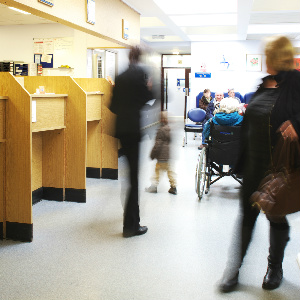Number of single-handed practices has halved in seven years, study finds

The number of GP practices with only a single partner has halved since 2006, while the number of practices with ten or more doctors grew by over 75%, a new report investigating the general practice crisis has found.
A Nuffield Trust analysis of official data showed that there were 1,717 single-handed practices in 2006, but only 891 in 2013, while more than three quarters (77%) of health and social care leaders surveyed by the think-tank said small GP practices are ‘no longer fit for purpose’.
The report, titled Is General Practice in Crisis?, concluded that ‘general practice is under great pressure from falling funding, workforce problems, and the growing needs and rising expectations of an older, sicker population’.
The Nuffield Trust suggested that a solution is for GP practices to ‘move away from the traditional model of small, free-standing general practices, towards larger GP organisations or networks’.
The report said: ‘Collaborating in this way allows GPs to pool resources and increase scale, improving their ability to invest in staff and infrastructure, and build links with the wider health system and take on new and extended clinical and managerial roles. This does not mean that the familiarity of local practices need be lost. Network structures can allow the advantages of scale while keeping their neighbourhood presence.’
It further suggested these larger practices should keep separate lists for patients with different needs so that for example frail elderly or homeless people could attend practices employing specialists in other relevant fields such as geriatricians or mental health workers.
Other solutions suggested included handing a larger share of the NHS budget to general practice and for politicians to reduce public ‘criticism and confrontation’ with GPs.
However, GPC chair Dr Chaand Nagpaul said patients still value the ‘flexible and local approach’ delivered by smaller GP practices.
He said: ‘While one response to these pressures is for practices to get bigger, or increasingly work together in groups, we must not lose the flexible and local approach delivered by many smaller practices that is so valued by many patients. Fundamentally, we need policy makers to properly support and invest in general practice so that it has the ability to deliver the care that patients deserve.’









